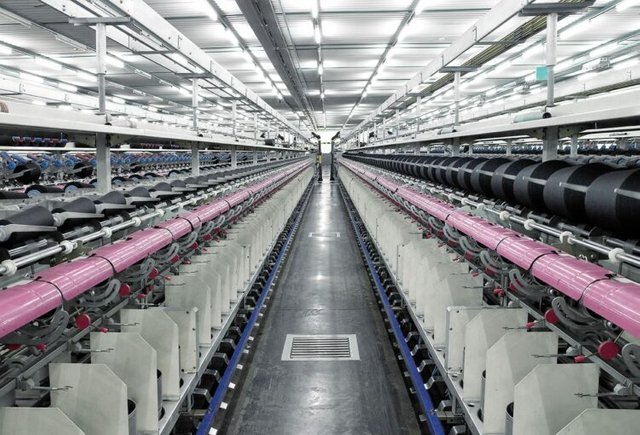Benzyl Alcohol Production Cost Analysis 2025: Profitability Analysis
Benzyl Alcohol is a clear, colorless liquid with a mild, pleasant aromatic odor. It's an aromatic alcohol, meaning it contains a benzene ring directly linked to a hydroxymethyl group. Due to its unique properties—polarity, low toxicity, and low vapor pressure—it serves as an effective solvent for a wide range of substances. Benzyl Alcohol is found naturally in various plants and essential oils and is widely used in pharmaceuticals, cosmetics, food flavorings, paints, and as a chemical intermediate.
Setting up a benzyl alcohol production plant typically involves either the hydrolysis of benzyl chloride or the hydrogenation of benzaldehyde. The process necessitates specialized equipment like reaction vessels, distillation columns for purification to achieve desired grades (pharmaceutical, cosmetic, industrial), and storage tanks. Given the handling of chemicals, robust safety protocols, effluent treatment facilities, and adherence to Indian environmental and chemical manufacturing regulations are paramount.
IMARC's new report titled Benzyl Alcohol Production Cost Analysis 2025: Industry Trends, Plant Setup, Machinery, Raw Materials, Investment Opportunities, Cost and Revenue” provides a comprehensive roadmap for setting up a benzyl alcohol production plant. The study encompasses all the essential information needed to enter the benzyl alcohol industry, including capital investment, operating costs, raw material requirements, and profit projections. The benzyl alcohol production cost analysis offers detailed insights into cost structures and economic feasibility, helping stakeholders make informed decisions. It is a valuable resource for entrepreneurs, investors, researchers, consultants, business strategists, and anyone with an interest or stake in the benzyl alcohol sector.
Key factors for setting up a benzyl alcohol production plant:
1. Market Research
The Benzyl Alcohol market in India is poised for robust growth in 2025, driven by its indispensable role in the booming pharmaceutical and personal care sectors. The increasing demand for injectable medications and a growing consumer preference for natural ingredients in cosmetics are key catalysts. Furthermore, the expanding paints and coatings industry, fueled by infrastructure development, contributes significantly. Technological advancements and the development of bio-based alternatives are also shaping the market, ensuring a positive outlook.
The report offers an exhaustive overview of the global benzyl alcohol industry, including a detailed breakdown by segments and regions within the sector. It also includes in-depth analyses of prices involved, market trends and historical data and forecast.
- Market Forecast
- Price Analysis
- Market Breakup by Region
- Market Breakup by Segment
- Market Trends
Request for a Sample Report: https://www.imarcgroup.com/benzyl-alcohol-manufacturing-plant-project-report/requestsample
2. Planning and Designing
A detailed and up-to-date business plan is indispensable for mapping out the steps to establish and operate a benzyl alcohol production facility. This report offers in-depth details about the process flow and the various unit operations involved in a benzyl alcohol production plant.
- Technical Tests
- Quality Assurance Criteria
- Mass Balance and Raw Material Requirements
- Unit Operations Involved
- Product Overview
3. Legal and Regulatory Compliance
Understanding and complying with the intricate framework of business laws and regulations is a vital aspect of establishing a benzyl alcohol production facility. This requires a detailed knowledge of legal obligations, such as labor laws, environmental standards, tax policies, and industry-specific regulations.
4. Plant Requirements and Costs
The report offers a detailed location analysis, including insights into land selection, key criteria, location importance, environmental considerations, and associated costs for establishing a benzyl alcohol production facility. It also provides information on plant layout and the factors that impact its design.
- Human Resource Requirements and Costs
- Utility Requirements and Costs
- Transportation Requirements and Costs
- Packaging Requirements and Costs
- Raw Material Requirements and Costs
- Machinery Requirements and Costs
- Plant Layout
- Land, Location and Site Development
Browse the Full Report with the Table of Contents: https://www.imarcgroup.com/benzyl-alcohol-manufacturing-plant-project-report
5. Hiring and Training
Effective workforce planning and recruitment strategies are critical for assembling a skilled and efficient team to manage a benzyl alcohol production plant. This process includes identifying the specific skills and qualifications needed for different roles and anticipating future staffing requirements based on production goals and business expansion.
- Developing Health and Safety Protocols
- Implementing Training Programs for Employees
- Complying with Labor Laws and Regulations
6. Supply Chain Management
Building strong partnerships with suppliers and vendors is crucial to maintaining a dependable and cost-efficient supply chain. This requires choosing partners who can reliably deliver high-quality raw materials and components at competitive rates.
- Planning Logistics and Transportation Networks
- Implementing Efficient Inventory Management Systems
7. Project Economics
This entails a thorough analysis of the costs associated with a benzyl alcohol production plant, covering capital expenditure (CapEx), operating expenditure (OpEx), income forecasts, taxation, depreciation, liquidity, profitability, payback period, net present value (NPV), uncertainty, sensitivity assessments, etc. In addition to this, it includes an in-depth review of financial assistance options and a comprehensive list of certifications necessary for establishing the plant.
- Financial Analysis
- Profit Projections
- Taxation and Depreciation
- Revenue Projections
- Expenditure Projections
- Operating Costs
- Capital Investments
8. Marketing and Distribution Strategies:
Creating a robust marketing strategy and establishing strong brand positioning are vital for building a production plant's market presence. This process includes conducting thorough market research to identify customer needs, preferences, and competitive trends.
- Identifying Distribution Channels and Sales Networks
- Leveraging Digital Marketing and E-Commerce Platforms
- Participating in Trade Shows and Industry Events
About Us:
IMARC Group is a global management consulting firm that helps the world’s most ambitious changemakers to create a lasting impact. The company excel in understanding its client’s business priorities and delivering tailored solutions that drive meaningful outcomes. We provide a comprehensive suite of market entry and expansion services. Our offerings include thorough market assessment, feasibility studies, company incorporation assistance, factory setup support, regulatory approvals and licensing navigation, branding, marketing and sales strategies, competitive landscape, and benchmarking analyses, pricing and cost research, and procurement research.
Contact Us:
IMARC Group
134 N 4th St. Brooklyn, NY 11249, USA
Email: sales@imarcgroup.com
Tel No:(D) +91 120 433 0800
United States: +1-631-791-1145
